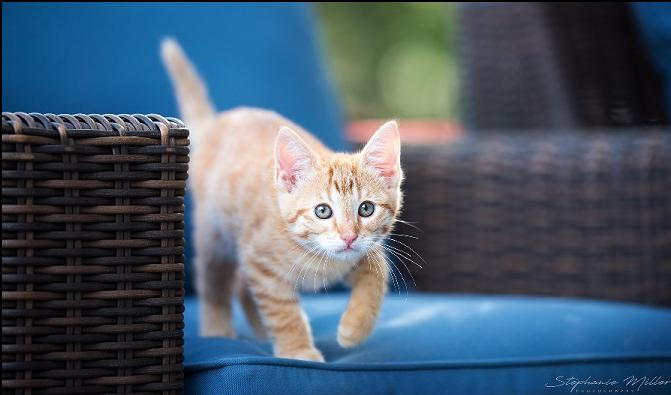
There is a maxim in veterinary medicine, “cats are not small dogs” and every day I find that to be true as a general practitioner at SWVH. Being a veterinarian is challenging for many different reasons, but treating different species is an important one. I am happy to focus on dogs and cats – two species are enough for me!
I often get asked how best to introduce a new cat into a household and thought I’d write this month’s blog post on it. First let’s dive into the social structure of our furry friend the feline. Did you know cats live in a matriarchal society? In the wild, multiple queens (female) cats and their kittens occupy a territory and may stay together for up to 18 months. Once male cats mature, they leave their mom’s group and roam for resources. With cat-to-cat interactions we can see assertive/dominant behaviors (hissing, swatting, biting) that often lead to resource guarding (food, water, litter boxes, prime lounging locations). Cats that are more timid may have a hard time giving the assertive cats enough space which can lead to stress often manifesting as decreased appetite, hiding and/or inappropriate eliminations (not using the litter box as designed). Multiple cats living in our human homes can make these personality clashes affect the stress of level of our feline friends; chronic stress can lead to medical concerns.
So what can we do? Veterinary behavioral specialists recommend to think like a cat when considering multiple cats in one household – get two related females (aunts, daughters, grandmothers) or one male and one female. Other considerations are to make sure there are ample resources (food, perches, hiding spots, litter boxes, water). Did you know it is recommended to have one litter box per cat plus one? And to make sure there is a litter box on each level of the house? Two litter boxes in the right next to each other count as one!
If there is an established cat in the household and you are introducing a new feline friend – please do it SLOWLY. Cats will better accept a new housemate if they first are comfortable with the smells, then the sight, then the interactions. Veterinary behaviorists recommend keeping the new cat in a separate room with a solid door for both health and behavioral reasons. Feeding the new and established cats on either side of the door can help them see that resources don’t need to be guarded, and you can move the food bowls further apart if there are any signs of aggression such as hissing, nervousness to eat, etc. A suggestion to help develop a community scent is to swap towels are blankets between the newbie and the established cats. A blanket the new cats has been sleeping on gets moved out to the favorite lounging spot of the established cat and vice versa. Ideally introductions should be done very slowly – at least a month – and not moved forward if there are any signs of aggression or stress. If you have questions as this process is evolving in your home, reach out to us! Using calming pheromones like Feliway or oral supplements like Zylkene can help with transitions.
Want to learn more about our wonderful feline companions? Here are a couple useful websites:
Webinar on Feline Communication:
https://www.maddiesfund.org/feline-communication-how-to-speak-cat.htm
Website with cat (and dog) needs in our homes (I am partial since the Ohio State University developed this site):
https://indoorpet.osu.edu/cats
I hope this article has helped you to understand one small part of our feline friend psyche – there is some much more to learn!
Sincerely,
Dr. R
